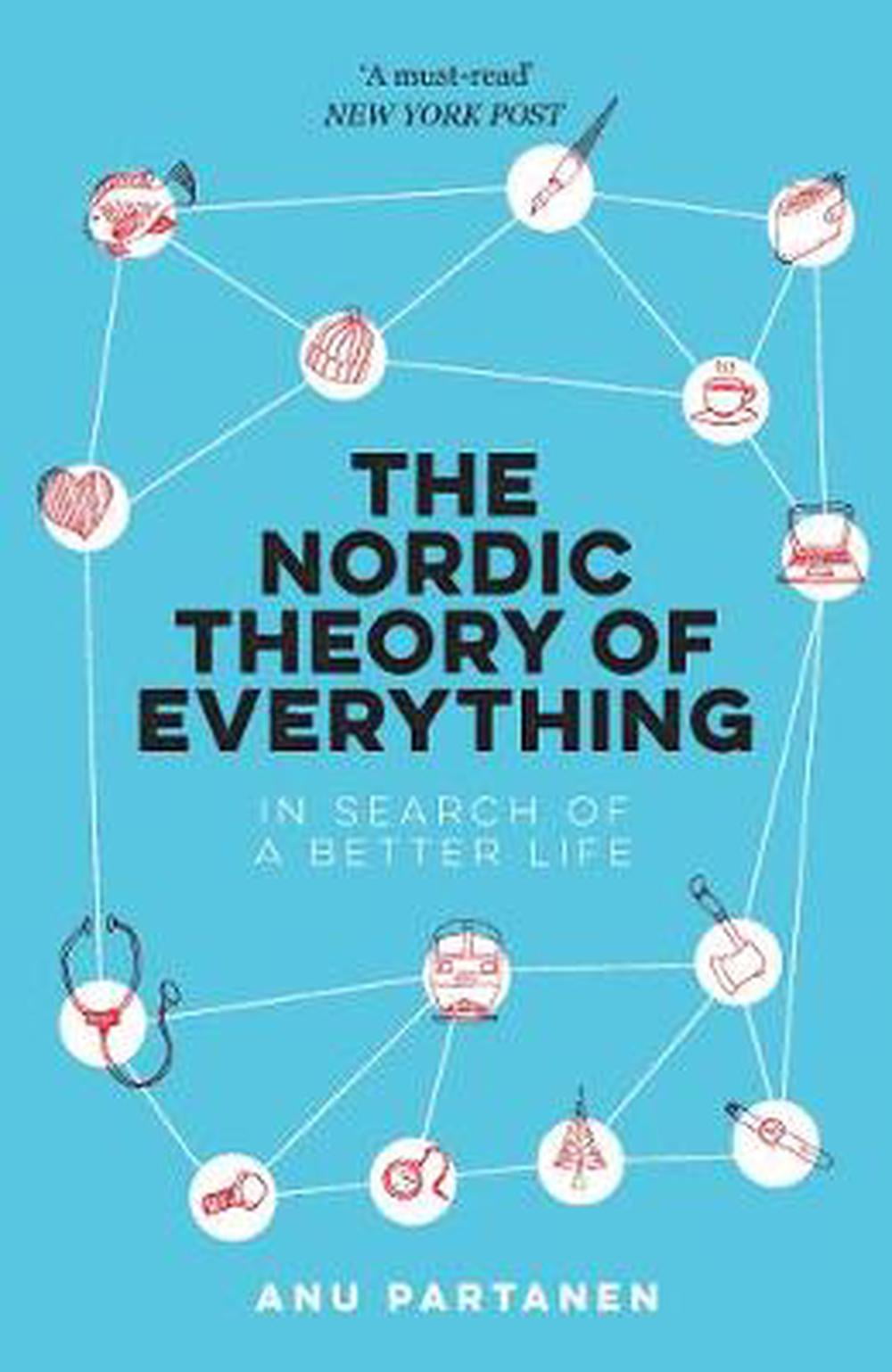
Nordic countries (Norway, Sweden, Finland, and Denmark), on the other hand, are frequently at or near the top. While American-born citizens still look on their country as the shining example to the world of democracy and prosperity, the country frequently shows up lower than other countries in terms of health, happiness, education, and the ability of citizens to rise from poverty to higher class and income levels. In The Nordic Theory of Everything she details what she noticed as the differences between US and Nordic culture and offers a clear perspective on both. Offering insights, advice, and solutions, The Nordic Theory of Everything makes a convincing argument that we can rebuild our society, rekindle our optimism, and restore true freedom to our relationships and lives.Ī non-radical perspective on two societiesĪnu Partanen was born in Finland and, as she details near the end of the book, became a US citizen. Partanen wants to open Americans' eyes to how much better things can be - to show her beloved new country what it can learn from her homeland to reinvigorate and fulfill the promise of the American dream - to provide the opportunity to live a healthy, safe, economically secure, upwardly mobile life for everyone. As Partanen explains step by step, the Nordic approach allows citizens to enjoy more individual freedom and independence than we do. She debunks criticism that Nordic countries are socialist "nanny states", revealing instead that it is we Americans who are far more enmeshed in unhealthy dependencies than we realize. In The Nordic Theory of Everything, Partanen compares and contrasts life in the United States with life in the Nordic region, focusing on four key relationships - parents and children, men and women, employees and employers, and government and citizens. To understand why life is so different in the US and Finland, Partanen began to look closely at both.

But as she got to know Americans better, she discovered they shared her deep apprehension. At first she attributed her crippling anxiety to the difficulty of adapting to a freewheeling new culture. She found that navigating the basics of everyday life - from buying a cell phone and filing taxes to education and childcare - was much more complicated and stressful than anything she encountered in her homeland.


Moving to America in 2008, Finnish journalist Anu Partanen quickly went from confident, successful professional to wary, self-doubting mess. A Finnish journalist, now a naturalized American citizen, asks Americans to draw on elements of the Nordic way of life to nurture a fairer, happier, more secure, and less stressful society for themselves and their children.


 0 kommentar(er)
0 kommentar(er)
